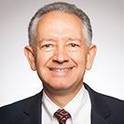This article investigates in greater depth one particular aspect of cheating within secondary education and some implications for measuring academic achievement. More specifically, it examines how secondary students exploit the Internet for plagiarizing schoolwork, and looks at how a traditional method of educational assessment, namely paper-based report and essay writing, has been impacted by the growth of Internet usage and the proliferation of computer skills among secondary school students. One of the conclusions is that students’ technology fluency is forcing educators to revisit conventional assessment methods. Different options for combating Internet plagiarism are presented, and some software tools as well as non-technology solutions are evaluated in light of the problems brought about by “cyberplagiarism.”
Article
Computers, the internet, and cheating among secondary school students: Some implications for educators
Teacher Education
Document Type
Article
Publication Date
1-1-2004
Publisher
ERIC Clearinghouse on Assessment and Evaluation and the Department of Measurement, Statistics, and Evaluation
Disciplines
Abstract
Citation Information
Conradson, S. & Hernández-Ramos, P. (2004). Computers, the internet, and cheating among secondary school students: Some implications for educators. Practical Assessment, Research, and Evaluation 9(9). [Available online http://pareonline.net/getvn.asp?v=9&n=9.]
